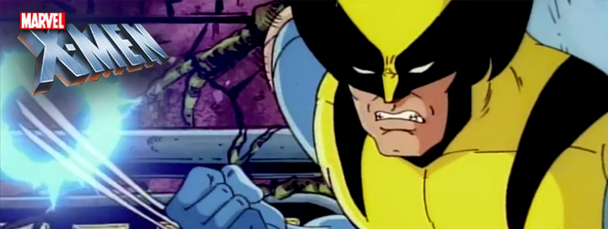Written by Tom Pinchuk
(Originally Featured in Comic Vine)

Pinpointing your exact entry-point into fandom is tricky when your interest in all this stuff started sometime before you were six. I know, for sure, that I had random Spider-Man and Superman comics before the 90s X-Men cartoon’s debut. I know, for sure, that I watched the Pryde of the X-Men TV special and played its tie-in arcade game before the show began, too. However, Fox's X-Men was unequivocally the thing that kicked my casual interest over the cliff and into the valley of fanaticism I'm still walking in.
Back in the early 90s, when Saturday mornings were still a special time slot, kids my age had a whole slew of shows to choose from. Power Rangers, Captain Planet... the list would get way too long to fit here. Yet, there was something about X-Men that made it stand out so distinctly from the pack. After some reflection, I've concluded that it was because it was almost exactly like the comics of the time.
Typically, a comics-based toon will be more of cumulative adaptation. Batman: The Animated Series , for example, was meant to capture all seasons of the caped crusader at once, timelessly, rather than being a direct translation of any one era. Even the latter X-Men shows re-tooled the comics' characters, costumes and concepts enough to have identities distinct unto of themselves. You look at images from this show, though, and the only discernible difference from the X-books of the time is that Jean Grey opts to wear her hair in a ponytail instead of letting it flow freely. The line-up's the same as the Blue Team from the mid-Claremont period (with Jean and Storm cherry-picked from the Gold) and the characters are all wearing the costumes Jim Lee designed for them just a year prior.
The conventional thinking for adaptations is that you need to simplify, because the comics are just too complicated for new audiences. However, looking back at this, I suspect X-Men was so appealing precisely because it was almost entirely unfiltered. Kids hate being talked down to and this show, from the get-go, had a complexity and an edge that most Saturday morning fare didn't. Morph getting killed off in the first episode established how dark things could get pretty damn quickly. Actually, I suspect this show might've been one of the last gasps of creative freedom American kids entertainment enjoyed before the crackdown Senator Joe Lieberman and his ilk instigated around '93. After that point, toons starting getting defanged and declawed on the whole, making the unhindered comics that much more enticing to migrate to. If you'd just seen a toned-down version of the Age of Apocalypse then, almost by instinct, you wanted to see it uncensored.
After meeting some of the guys behind this, I realized that the animators' own fandom may have been the truly crucial factor in why this show was such an effective gateway. Since the staff was all reading the comics, they'd sneak in as many Easter Eggs as they could get away with. Hence, when Wolverine later encountered a deranged, resurrected Morph, the shape-shifter would taunt him by assuming the forms of random characters like Deadpool, Garrison Kane and Gideon who'd never been named on-screen nor referenced ever again. Rather than being confused by those sorts of winks, my friends and I were actually curious about them.
The progression of our interest would basically follow like this: we loved the show so, of course, we wanted the action figures. A lot of the action figures came with trading cards so, of course, we then wanted to get the way over-priced packs from Fleer. The packs contained cards for the regulars on the show, of course, but they also had ones for those who'd only shown up in the aforementioned Easter Eggs. With these additional kernels of information we, of course, wanted to get the full story about these characters in the comics. After seeking the comics out, we were, of course, summarily hooked.
Why, it was almost like it was planned that way...
Because it didn't for a timeless approach, maybe this show hasn't aged as well as Batman: The Animated Series has. For one, the character models were often more detailed than the animation could handle sometimes. However, I wonder how well its cartoon-to-comics fan conversation rate stacks up in comparison to others, as I know many fans whose interest started with this show, too. Actually, let's put the question out to community. I'm sure most of you remember this show (though, then again, it has been 20 years) - - how many of you Comic Vine maniacs started your fandom with this one? If your memory's fuzzy, why don't we give it a jog with this catchy ditty...?